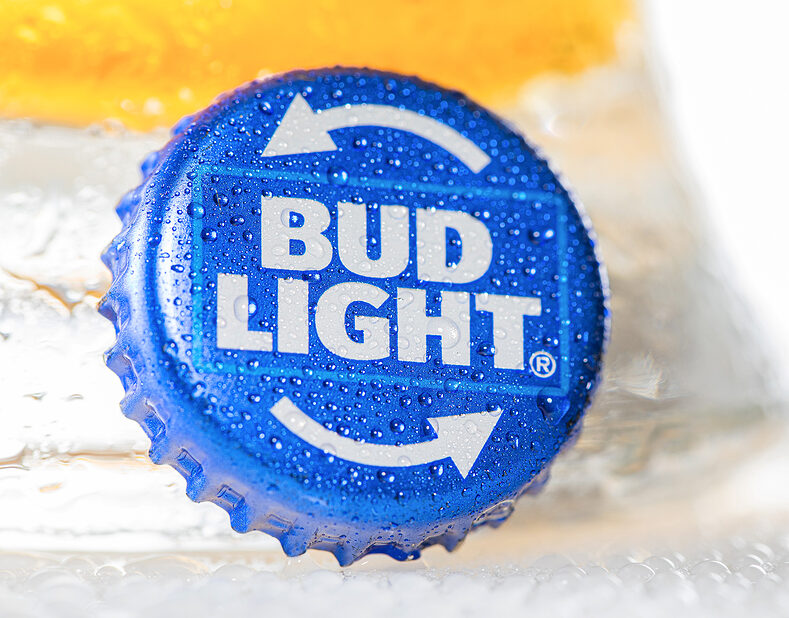Bud Light Slide Continues as ‘Betrayed’ Beer Drinkers Bail on Brand

Six weeks after its brand partnership with transgender social media celebrity Dylan Mulvaney made news, Bud Light sales are slumping so badly the company’s stock has been downgraded.
A Drexel University professor said the beer’s customer base feels “betrayed,” but other beers — including Pennsylvania’s own Yuengling — are getting a bounce in their sales. Yuengling sales are up some 14 percent, part of a national trend away from Bud Light.
A new report from Beer Business Daily found that in the four weeks leading up to April 29, Bud Light sales dropped 21.4 percent, Coors Light was up 10.9 percent, and Miller Lite rose 12.8 percent.
Across the mid-Atlantic region, which includes Pennsylvania, sales are down 19 percent. In 2021, Bud Light was Pennsylvania’s most popular beer.
The trend is so problematic that Wall Street has downgraded Anheuser-Busch InBev stock to “hold.”
“In a note Thursday, analysts at HSBC said the Bud Light sales slump might be worse than reported, and that beverage distributors are considering distancing themselves from the brand,” CBS News reports.
What’s happening in the Delaware Valley?
Tom Thornton, owner of D. McGillicuddy’s in Havertown, said, “I think maybe at first there was some backlash, and then I think people just kind of settled in with this (and are drinking it again),” he said.
“It definitely affected them for about a month, and I have not ordered much Bud Light in the wake of it,” said Thornton. “But that’s simply because it’s not necessary.”
He said his top seller in light beers has always been Miller Lite. Bud Light was second, followed by Coors Light.
‘I guess that’s how it goes when you make a marketing decision that maybe isn’t going to be a popular decision,” said Thornton.
John Sly, owner of Paoli Beverage, said there was a decline in Bud Light sales “when the story broke.”
But it has since rebounded. He did not see a drop in sales of any other Budweiser product.
“It didn’t put a damper on Bud Light,” said Sly. And he just had an order for 23 cases of beer from a caterer for an event; four of those cases were for Bud Light, he said.” From our perspective, the demand for Bud Light doesn’t seem to be lessening.”
Daniel Korschun, Ph.D., associate professor and marketing department head at Drexel University, said the Bud Light/Dylan Mulvaney story “is a fascinating marketing case study because it shows that some fundamental marketing tactics work very differently when things get political.
“Bud Light is a market powerhouse. But its customer base is aging. The brand knows that it needs to invite a younger audience. Maintaining its market share is a very common challenge for many brands such as LL Bean and Lincoln. The trick is to revitalize the brand without alienating the core group of customers,” Korschun said.
“That core group has developed associations about the Bud Light brand over a lifetime. The partnership with Dylan Mulvaney was perceived to be a betrayal by many of those customers because it conflicted with what they thought they knew the brand stands for.
“So, it is this sense of betrayal that is fueling much of this boycott,” Korschun said.
However, it is hard for many consumers to switch brands once they get into the habit of buying certain items. As the old cigarette ad said, they’d rather fight than switch.
“A recent study of the Goya boycott/buycott showed the boycott and buycott were short-lived. It usually takes more than one misstep to change consumer habits. Younger people tend to prefer craft beer over mass-market products, which is probably a bigger threat for Bud Light,” said Elea Feit, Ph.D., associate dean for research and assistant professor of marketing at Drexel University.
Responding to DVJournal on Facebook, Teri Selleck Majewski said she still drinks Bud Light.
“I never was one to follow the crowd. The ads are stupid, but I’m not going to change what I drink over them.”
Rich Heiland said he never drank it and preferred “real beer.”
“In this area, we have a lot of homegrown good beers.”
John Ricciutti said, “I was never, ever a lite beer drinker of any kind. So I could care less. Only alcoholics drink lite beer.”



